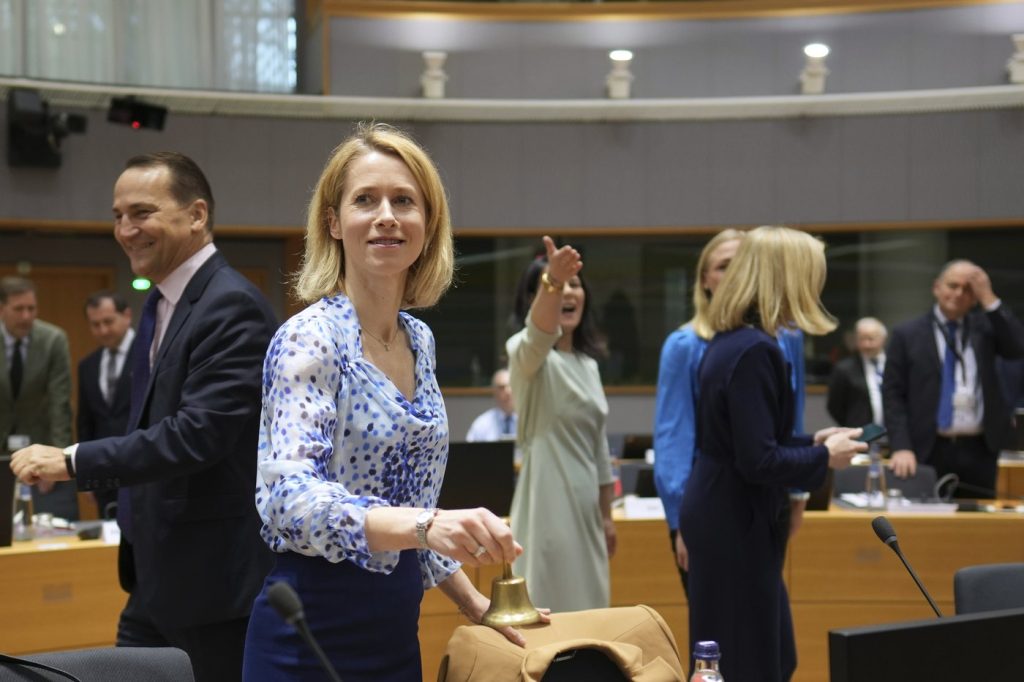BRUSSELS (AP) – European Union government ministers convened on Tuesday to discuss strategies for sustaining Radio Free Europe (RFE) following the Trump administration's recent cessation of grants to the influential media outlet. This decision, taken over the weekend, has raised concerns about the future of the network, which is known for its pro-democracy reporting.
Radio Free Europe/Radio Liberty originally began its broadcasts during the Cold War and now offers programming in 27 languages across 23 countries in Eastern Europe, Central Asia, and the Middle East. Its goal has been to champion democratic values and provide unbiased news, particularly in regions where free speech is under threat.
Sweden's European Affairs Minister Jessica Rozencrantz emphasized the importance of ensuring that RFE remains a crucial voice for freedom and democracy. She remarked, "Radio Free Europe really continues to be an important voice for freedom and democracy, especially in those places where it is most needed." Rozencrantz urged all member countries and the European Commission to explore financial avenues to maintain the network's strength.
The abrupt funding cuts were part of a broader strategy by President Donald Trump's administration, which also involved significant reductions in funding to the Voice of America and other government-operated media initiatives aimed at supporting democracy. In response to the funding freeze, Stephen Capus, President and CEO of RFE, stated that the cancellation of the grant agreement would serve as "a massive gift to America's enemies."
During the meeting, EU foreign policy chief Kaja Kallas highlighted her personal connection to the network, recalling her experiences growing up in Estonia while it was still under Soviet control. Kallas noted the vital role that RFE played in disseminating information at that time, calling it "a beacon of democracy" and expressing disappointment over the U.S. withdrawal of financial support. However, she cautioned that securing alternative funding to replace what the U.S. is leaving behind would be challenging, as there are many organizations competing for the same financial resources.
The Czech Republic, which has been the host country for Radio Free Europe for the past 25 years while its corporate headquarters remains in Washington, has taken the lead in efforts to ensure the network's continuation. Kallas acknowledged that there was considerable momentum among foreign ministers to engage in discussions about finding solutions to support RFE financially. She remarked that there was a "real push" to explore potential funding mechanisms and safeguard the organization’s future.
As EU ministers explore various funding options, the urgency to support RFE underscores the broader struggle for media freedom and the protection of democratic values amidst global political challenges. The discussions signify the EU's commitment to maintaining a strong voice for democracy in areas where it is under serious threat, amidst concerns over increased disinformation and anti-democratic rhetoric.










